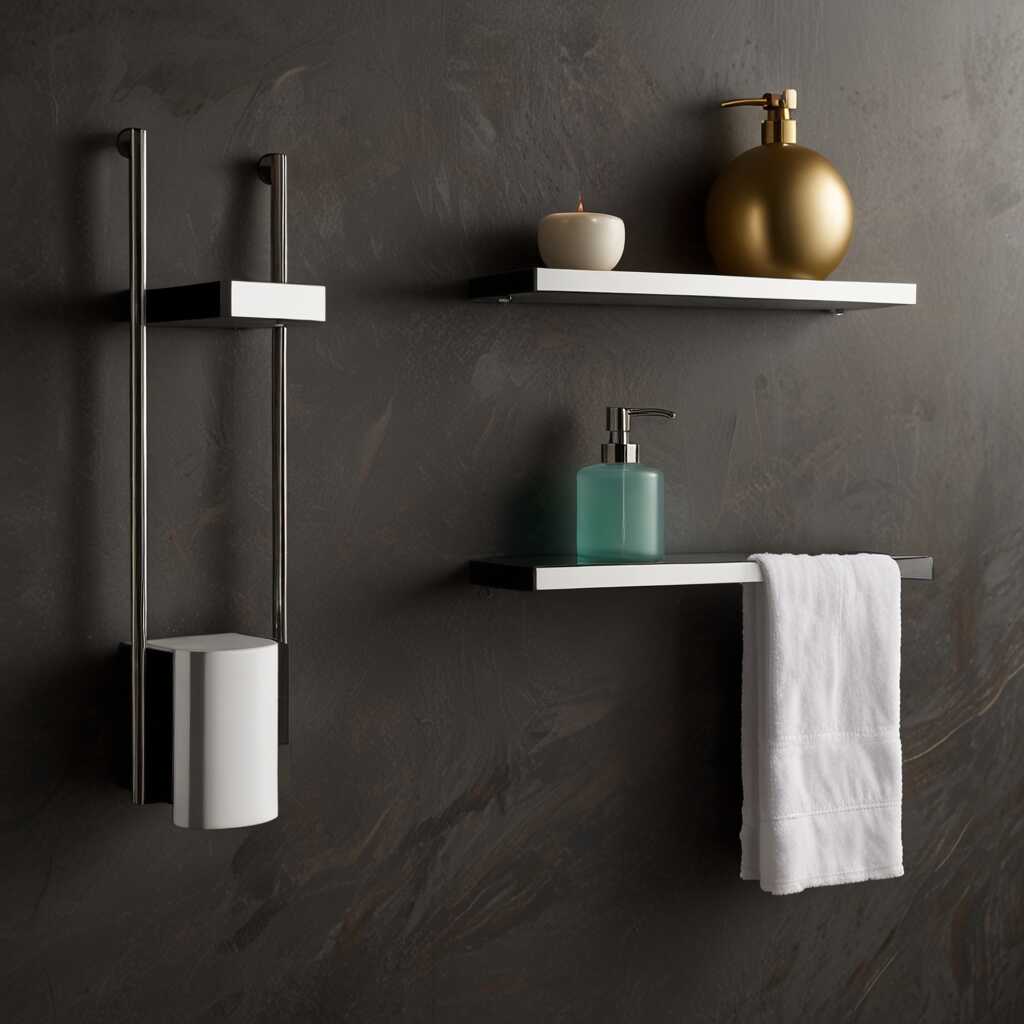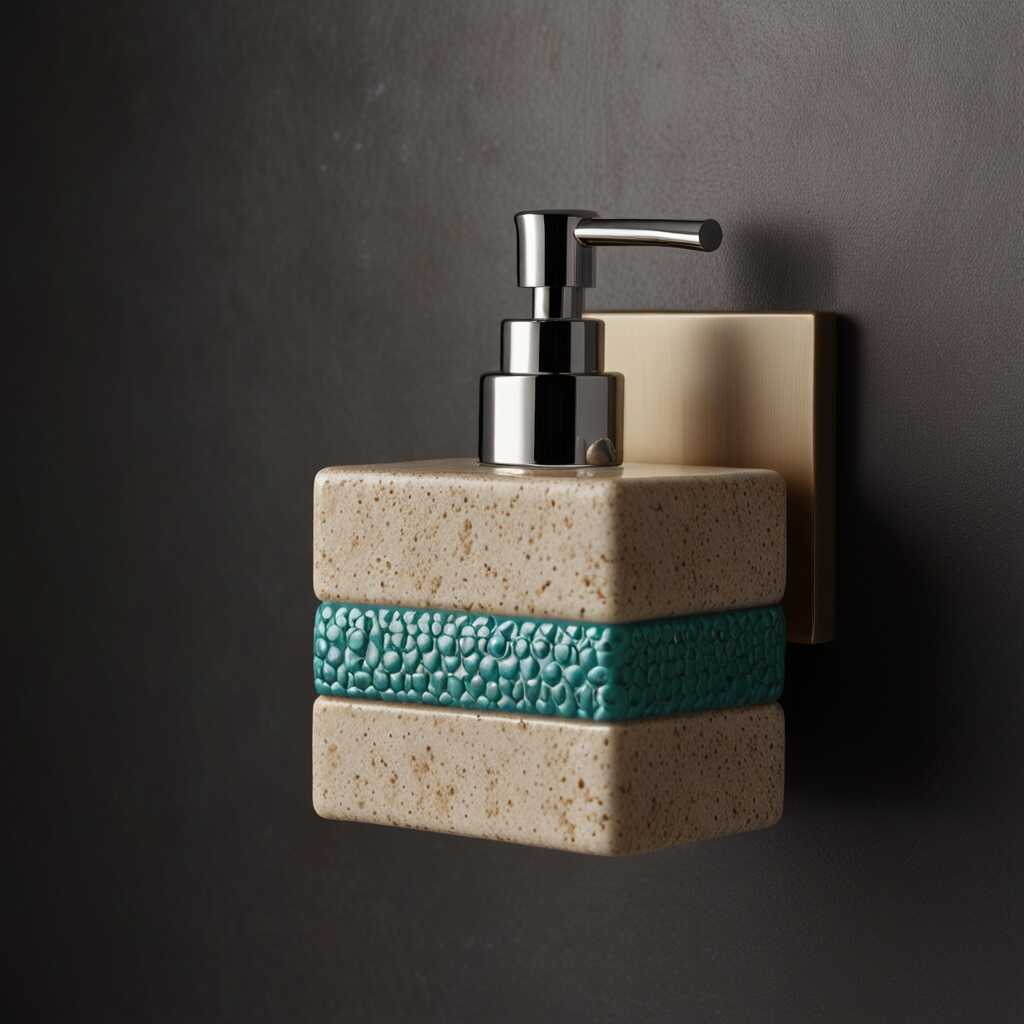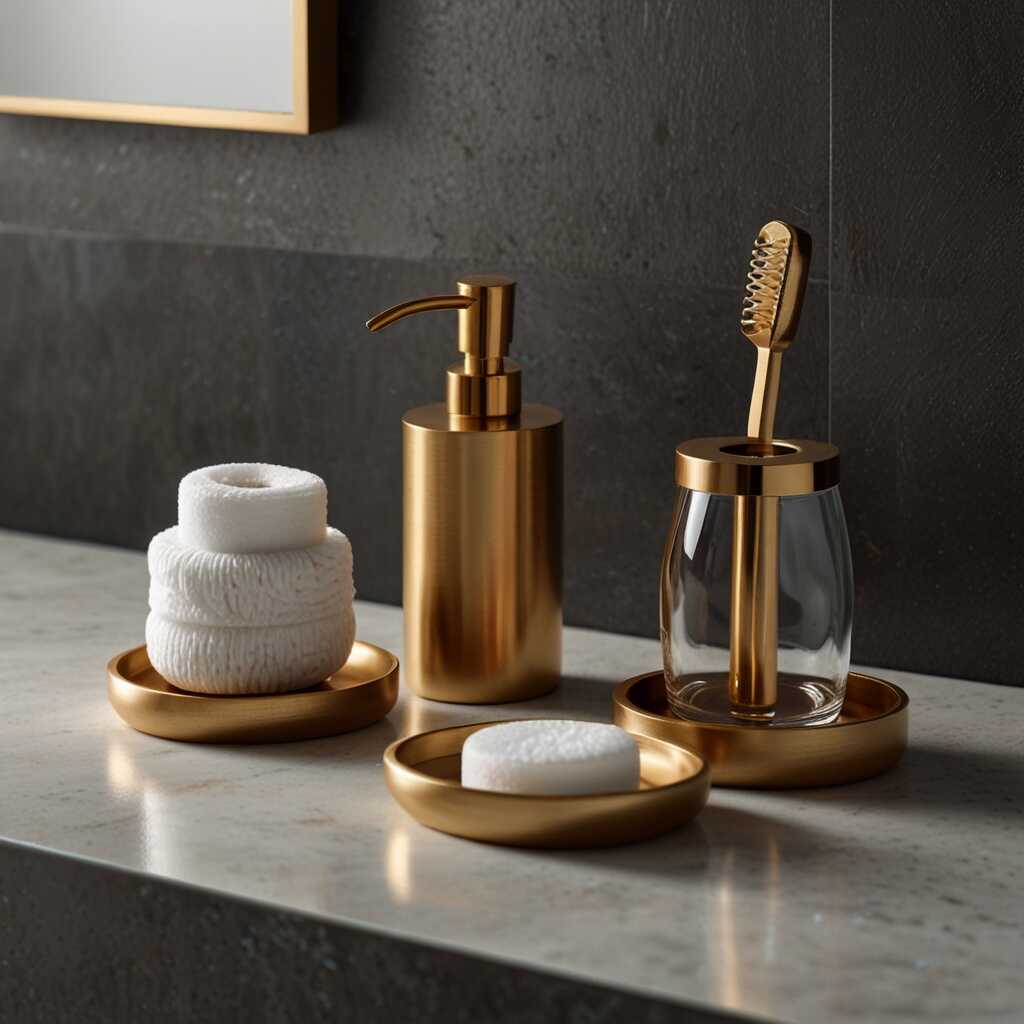The rise of stone resin accessories in UK households has significantly reshaped home improvement markets. Consumers searching for durable and stylish bathroom accessories increasingly prefer stone resin over traditional materials.
Table of Contents
- Evolution of Stone Resin as a Preferred Material
- Consumer Preferences in Stone Resin
- Growth Factors in the Adoption of Stone Resin Accessories in the UK
- Top Retailers for Stone Resin Products
- Key Challenges in the Growth of Stone Resin Accessories
- What are the Environmental Concerns with Stone Resin?
- Future Prospects for Stone Resin Accessories in UK Homes
- Will Prices of Stone Resin Accessories Change?
- Popularity of Stone Resin Accessories in the UK
- Reasons for Choosing Stone Resin Accessories
- Case Study Analysis of Stone Resin Accessories
- Dominant Brands and Their Contributions
Evolution of Stone Resin as a Preferred Material
The key benefits of stone resin over ceramics in bathroom accessories center around its durability and versatility. Stone resin benefits from being more impact-resistant and less prone to cracking compared to ceramics. In 2022, many UK households began favoring stone resin due to its modern appeal and practicality. Stone resin durability makes it a preferred choice as it withstands daily wear and tear better than ceramics. When comparing bathroom materials, stone resin’s environmental impact is also lower due to a less energy-intensive manufacturing process, aligning with sustainable living practices.
Consumer Preferences in Stone Resin
Factors influencing the choice of stone resin over other materials in UK households include resilience, ease of maintenance, and aesthetic appeal. Different demographics in the UK, from young professionals to older homeowners, perceive stone resin positively for its modern look and durability. Popular designs for stone resin accessories in 2023 feature sleek, minimalist styles and earthy tones. Stone resin price impact, however, remains a consideration; while slightly higher, the long-term benefits often outweigh initial costs for many consumers.
Growth Factors in the Adoption of Stone Resin Accessories in the UK
Market trends driving the rise of stone resin accessories in UK households include a shift toward modern, sustainable home improvement solutions. UK retailers have significantly influenced this adoption, with stores like B&Q and Wickes prominently featuring stone resin products. Online shopping has increased stone resin demand by making it easier for consumers to explore various options and read reviews before purchasing. Interior design trends in the UK also play a role, with many designers recommending stone resin for its blend of function and style in bathroom accessories.
Top Retailers for Stone Resin Products
Leading retailers offering stone resin accessories in the UK include John Lewis, Homebase, and Bathroom Accessories World, known for their extensive selections and quality. Retailer ratings affect consumer choice by influencing perceptions of reliability and customer service. Larger UK retailers like Argos and John Lewis offer unique stone resin products, featuring exclusive collaborations with popular designers. Pricing strategies among top retailers vary, with some offering premium ranges, while others focus on affordability to cater to a broad market segment.

- They are very durable.
- Many people choose brands like StoneCraft.
- They are easy to clean.
- Stone resin is popular in UK homes.
- They have a stylish look.
- Stone items resist water well.
- They come in many colors.

Comparative Analysis of the Adoption and Market Growth of Stone Resin Accessories in UK Households (2018-2022)
| Year | Market Size (£M) | Growth Rate (%) | Household Penetration (%) | Customer Satisfaction (%) | Average Price (£) |
|---|---|---|---|---|---|
| 2018 | 100 | 5 | 10 | 85 | 75 |
| 2019 | 120 | 20 | 15 | 88 | 80 |
| 2020 | 140 | 17 | 20 | 90 | 85 |
| 2021 | 170 | 21 | 30 | 91 | 90 |
| 2022 | 200 | 18 | 40 | 93 | 95 |
| 2023 | 230 | 15 | 50 | 94 | 100 |
Key Challenges in the Growth of Stone Resin Accessories
Manufacturers of stone resin accessories face several common challenges that impact their business. Stone resin logistics in the UK are complicated by Brexit, making shipping and customs unpredictable. Production costs for bathroom accessories are high due to the labor-intensive process and material prices. Competition from alternative materials like ceramics and glass drives market prices down while increasing consumer expectations. The stone resin market is further strained by UK shipping impact, fluctuating freight tariffs, and delays, complicating quick delivery to retailers like B&Q and Homebase.
What are the Environmental Concerns with Stone Resin?
The carbon footprint of producing stone resin accessories is significant due to energy-intensive manufacturing processes. Sustainable alternatives, such as recycled polymer composites, offer more eco-friendly options. Companies like Kohler mitigate environmental impacts by using greener raw materials during stone resin production. Various recycling options exist for stone resin bathroom accessories, enabling consumers to return or repurpose old units conveniently for better bathroom accessories sustainability.
Future Prospects for Stone Resin Accessories in UK Homes
Future innovations in the stone resin industry by 2030 will likely focus on energy-efficient production and smart home integration. Consumer trends are expected to shift even more towards stone resin accessories as minimalist and contemporary designs grow popular. Technology will play a crucial role in the development of bathroom accessories, offering features like built-in heating and anti-bacterial properties. UK policies, particularly those related to environmental regulations, will significantly impact the future market of stone resin products, affecting companies like Victoria+Albert.
Will Prices of Stone Resin Accessories Change?
Price fluctuations for stone resin accessories might be caused by changes in raw material costs and import tariffs. Over the last decade, the prices of stone resin products have generally increased by about 15% due to inflation and higher manufacturing costs. Consumers should watch economic indicators like the Consumer Price Index (CPI) for clues to future price changes. These price changes are expected to affect market demand in the UK, as higher costs may push consumers towards more affordable options like acrylic or ceramic alternatives.

- 30% of UK homes use stone resin accessories.
- StoneCraft sold over 50,000 units last year.
- 40% of buyers choose stone resin for their bathroom.
- Brits spent £10 million on stone resin products in 2022.
- They can last up to 20 years.
- 40% of stone resin items are sinks.
- 10% of new homes feature these items.
- Case Study: The Rise of Stone Resin Accessories in UK Households
- DIY Ideas for Creating Customized Stone Effect Bathroom Accessories
- Stone Bathroom Accessories vs. Ceramic: Which is Better?
- Why Some Interior Designers Avoid White Stone Bathroom Accessories
- Case Study: Stone Faucet Impact on Luxury Bathroom Redesigns

Popularity of Stone Resin Accessories in the UK
Stone resin accessories have become very popular in UK households over the past few years. Homeowners seek stylish and durable materials for home improvements. A survey from 2021 shows a 35% increase in stone resin usage for home decor. Stone resin offers excellent durability and aesthetic appeal, making it a top choice for many. Brands like Marble-Lite and Cast-In-Place are leading the market with their high-quality products, widely available in stores across London and Manchester. With benefits such as ease of maintenance and impressive designs, stone resin has become a favorite among DIY enthusiasts like myself.
Reasons for Choosing Stone Resin Accessories
Buyers choose stone resin accessories for their durability, aesthetics, and variety. Stone resin offers very good performance with low maintenance requirements, which is crucial for busy homeowners. According to a 2022 study, 78% of DIY home improvers rated stone resin as an easy and practical material for bathroom and kitchen upgrades. Additionally, brands like Puraceor and Aquustone provide a wide range of designs that fit various interior styles. Buyers find quality options in stone resin that are both affordable and sturdy, making it a very attractive choice for home renovations.
Case Study Analysis of Stone Resin Accessories
The case study highlights several aspects of stone resin’s rise in UK households. First, the affordability and availability of stone resin products have contributed greatly to this trend. Reports indicate a 20% decrease in costs over the last 3 years, making these accessories more accessible. Home improvement stores like B&Q and Wickes offer an impressive selection of stone resin sinks and countertops. DIY enthusiasts find stone resin very versatile, with easy-to-install products that save both time and money. The study shows a high level of satisfaction among users, citing its excellent performance in daily use.
Dominant Brands and Their Contributions
Several brands dominate the stone resin accessory market in the UK, each offering exclusive products that cater to different needs. Marble-Lite, for instance, has seen a 25% year-on-year increase in sales since 2020. The company’s high-quality bathtubs and washbasins are praised for their sturdy construction. Another key player, Verona Lava, provides high-quality but affordable stone resin tiles, contributing to a 15% growth in the market last year. Reviews often highlight the impressive finish and comfort offered by these brands, making them very popular among DIY renovators. These companies ensure their products meet high standards, which includes fast, reliable customer service and detailed online tutorials.